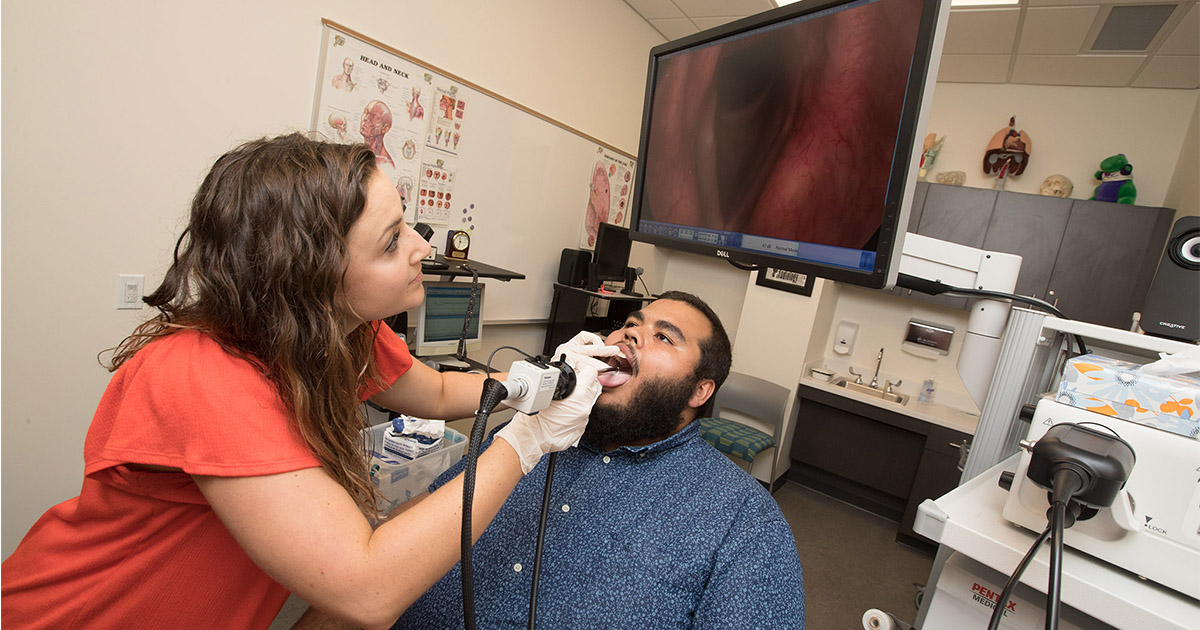How a Speech Pathologist Can Support Stroke Recovery and Rehabilitation
Wiki Article
Exactly How a Speech Pathologist Can Assist Improve Communication Skills
Efficient communication is a foundation of professional and personal success, yet many individuals face obstacles that prevent their capacity to share themselves plainly. A speech pathologist is furnished to attend to these barriers through targeted assessment and intervention approaches customized to every individual's needs. By employing evidence-based healing strategies, they not just work to improve speech and language problems yet likewise enhance overall communicative capability. Recognizing the diverse role of a speech pathologist reveals just how their know-how can transform lives, inviting a more detailed assessment of the particular methods and end results connected with their practice.Recognizing Communication Problems
Comprehending interaction conditions is essential for acknowledging how they affect people' ability to share themselves and engage with others. Communication problems encompass a vast range of problems that affect speech, language, and social interaction, usually hindering efficient interaction. These disorders can develop from various elements, consisting of neurological problems, developmental hold-ups, physical problems, or psychological problems.Speech problems might manifest as problems in expression, fluency, or voice manufacturing, impacting just how words are pronounced or spoken. Language problems, on the other hand, involve difficulties in understanding or using language, which can hamper both verbal and non-verbal interaction. Social communication disorders are defined by difficulties in the pragmatic elements of interaction, such as taking turns in conversation or understanding social cues.
The effects of communication disorders are profound, affecting not only the individual's ability to convey thoughts and emotions but also their social connections, academic chances, and general high quality of life. Understanding of these conditions can promote compassion and support, motivating effective techniques for communication and engagement. Understanding the complexities of interaction problems is a crucial action in the direction of advertising inclusivity and attending to the requirements of those impacted.
Role of a Speech Pathologist
Speech pathologists frequently play an essential duty in identifying and treating interaction conditions, employing a variety of evidence-based strategies customized to every individual's demands. These experts collaborate with individuals throughout the life expectancy, from children with speech hold-ups to adults recovering from strokes or stressful mind injuries. Their know-how includes a variety of interaction issues, consisting of articulation, fluency, voice, and language problems.In restorative setups, speech pathologists use structured treatments designed to boost communication abilities. They may apply techniques such as speech workouts, language games, and social interaction training to help with renovations in receptive and meaningful language abilities. Speech Pathologist. Furthermore, they educate clients and their households concerning effective interaction techniques and adaptive approaches to navigate daily communications
Beyond direct treatment, speech pathologists team up with other medical care caretakers, educators, and experts to make certain an extensive technique to therapy. They advocate for clients by offering sources and assistance, enabling individuals to achieve their interaction objectives and boost their total lifestyle. As professionals in the field, speech pathologists are crucial in fostering effective communication, promoting self-reliance, and improving social involvement for those with interaction obstacles.
Analysis and Medical Diagnosis Refine
The analysis and medical diagnosis procedure performed by speech pathologists generally involves an extensive assessment to determine communication conditions precisely. This process begins with a comprehensive medical history, where the clinician collects pertinent details concerning the person's clinical, academic, and developmental background. Understanding the context of the person's interaction problems is vital for a precise diagnosis.Following the medical history, speech pathologists use informal assessments and standardized examinations to examine different aspects of interaction, consisting of speech sound production, language understanding, expressive language, and social communication abilities. These evaluations are tailored to the person's age and certain issues, providing beneficial data for analysis.
Monitoring is also a critical part of the evaluation procedure, as it enables the medical professional to see direct how the specific communicates in all-natural settings. In addition, interviews with member of the family and educators can offer understanding into the person's communication obstacles across various environments.
When the evaluation is total, the speech pathologist synthesizes the findings to establish a diagnosis and advise suitable treatments. This comprehensive analysis procedure guarantees that people receive targeted support customized to their unique communication demands, laying the foundation for efficient healing strategies.
Restorative Strategies and Strategies
Many therapeutic techniques and techniques are utilized by speech pathologists to resolve a variety of interaction conditions properly. One commonly utilized technique is articulation treatment, which concentrates on remedying speech appears via repetition and visual hints. This method is specifically beneficial for individuals with speech sound conditions.An additional efficient technique read review is language treatment, which enhances both receptive and expressive language skills. This may involve interactive activities that promote vocabulary development, sentence structure understanding, and conversational skills. Furthermore, speech pathologists commonly make use of social abilities educating to enhance practical language capabilities, allowing individuals to navigate social interactions much more successfully.
Fluency shaping and stuttering modification techniques are specifically designed to assist those experiencing fluency problems. These strategies aid customers establish smoother speech patterns and handle the physical and emotional components of stuttering.
Moreover, different and augmentative interaction (AAC) systems are utilized for individuals with severe interaction disabilities. These systems, which can include gestures, icons, or electronic devices, provide crucial assistance for efficient communication.
Advantages of Speech Therapy

In addition, speech treatment can help in establishing vital listening and comprehension abilities, promoting better interaction in discussions. Individuals with cognitive-communication disorders can also profit, as therapy concentrates on reinforcing memory and analytical abilities, essential for reliable interaction.
Another critical facet is the emotional assistance supplied during treatment sessions. Speech pathologists produce a safe setting, encouraging patients to get rid of stress and anxiety and aggravation relevant to their communication issues. This assistance can lead to boosted self-esteem and total mental health.
Furthermore, very early intervention via speech therapy can protect against further complications, making certain that individuals reach their complete communicative potential. On the whole, the advantages of speech treatment extend beyond plain speech renovation, positively impacting various measurements of life for those influenced by interaction troubles.
Conclusion
In summary, speech pathologists play a crucial role in dealing with communication problems via assessment, diagnosis, and tailored therapeutic treatments. By utilizing evidence-based strategies, these professionals enhance people' speech and language capacities, promoting enhanced quality, fluency, and social interaction abilities. The benefits of early treatment underscore the significance of seeking assistance from speech pathologists, as their expertise can considerably enhance communicative potential, ultimately bring about higher success in both professional and personal spheres.
Speech pathologists frequently play a crucial duty in dealing with and diagnosing communication conditions, using a range of evidence-based methods customized to each person's demands. As experts in the field, speech pathologists are crucial in fostering effective communication, advertising freedom, and boosting social participation for those with communication difficulties.

Report this wiki page